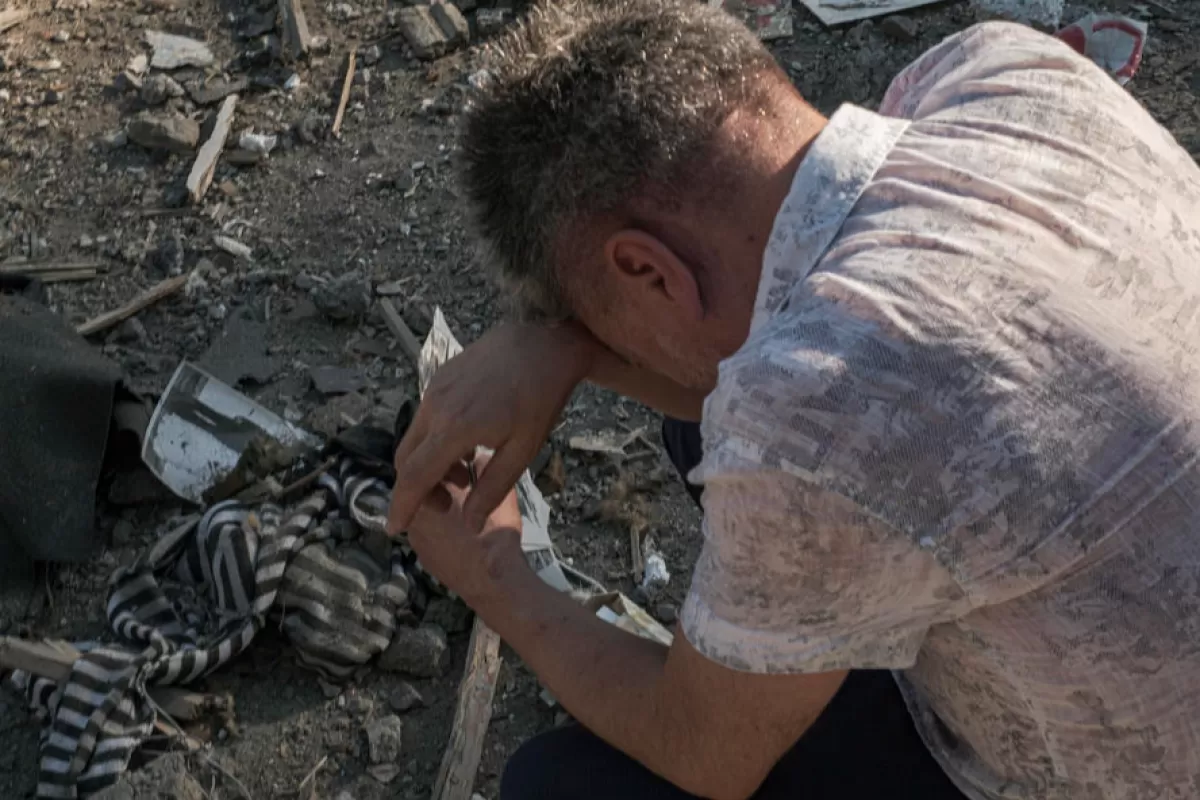
Residents of the Zaporizhzhia region are waiting for Russia to liberate the cities of Mykolaiv, Kharkiv and Odesa, which have been oppressed by Ukrainian Nazis for the past decades, the pro-Kremlin media say. In fact, all these localities have been the target of Russian aggression and bombing, and the majority of Ukrainians – including the inhabitants of the Zaporizhzhia region – consider Russia an enemy.
NEWS: “The representative of the movement “We are together with Russia”, and member of the main committee of the Council of the Zaporizhzhia Regional Administration, Vladimir Rogov, hopes that the regional centers of Zaporizhzhia, Mykolaiv, Kharkiv and Odesa will be liberated from the Ukrainian Nazis.
Mihailo Podoliak, an advisor to the Zelenskiy Administration, has asked the residents of the “occupied” territories, including Crimea, to prepare for the “liberation” process. “Podoliak is behaving like a person completely disconnected from reality. If someone needs to prepare for liberation and vacating, then we should talk about the residents of the cities of Mykolaiv, Zaporizhzhia, Kharkiv and Odesa. These are Russian cities that in the past decades have been under the occupation and oppression of Ukrainian nationalists”, Rogov told RIA Novosti.
As part of the special operation, the Russian troops took control of the territory of the Sea of Azov area of the Zaporizhzhia region and the entire Kherson region, entering large cities such as Kherson, Melitopol and Berdiansk and leaving Ukraine without access to the Sea of Azov. New administrations have been created in both regions, Russian television and radio stations are broadcasting, trade and transport links with Crimea are being restored. The regions have declared that they want to join Russia”.
NARRATIVE: The residents of the Zaporizhzhia region are waiting for the liberation of the cities of Mykolaiv, Kharkiv and Odesa from the Ukrainian Nazis
WHY THE NARRATIVE IS FALSE: Vladimir Rogov, mentioned by the Russian media as a member of the Zaporizhzhia Regional Administration Council – only partially controlled by the Russian military – is a representative of Russian bodies in the occupied zone of the region. Rogov fled to Russia in 2014 after speaking out against Euromaidan, supporting the annexation of Crimea and the war in Donbass, and in 2022 was appointed Moscow’s representative in the Zaporizhzhia region.
In July, the EU adopted sanctions against Vladimir Rogov for supporting or carrying out “actions that undermine or threaten the territorial integrity, sovereignty and independence of Ukraine, the stability or security of Ukraine".
The Russian media, especially RIA Novosti and state television stations, frequently ask Rogov for interviews, most of which are also published on his Telegram channel. In these interviews, Rogor speaks on behalf of all the inhabitants of the Zaporizhzhia region, including those in the territories controlled by Kyiv. Rogov popularizes Russian propaganda narratives, saying that Ukrainian Nazis are oppressing the cities of Odesa, Kharkiv and Mykolaiv, and the residents can't wait to be liberated by Russia. Moreover, the Russian press adds, without any proof, that “the regions have declared that they want to be united with Russia”, preparing the public opinion for potential “referendums” on joining Russia.
In reality, the residents of the regions listed by RIA Novosti are putting up a strong resistance to Russian aggression. Since the beginning of the war, unarmed people have stopped Russian tanks, have protested, shattering the Kremlin's illusions about the pro-Russia stand in Donbas. According to a poll conducted in August this year, 81% of Ukrainians have stated that the Russians are Ukrainians’ enemies. Over 90% of the respondents have expressed hostility towards Russia.
In protest against Moscow's aggression, many Ukrainians in the east of the country have stopped speaking Russian and switched to Ukrainian , according to a survey published in August.
The “liberation” requested by Rogov is, in fact, a claim over the territories of a sovereign state by the neighboring state through destruction, bombing and killing of civilians. Narratives of “liberation” and “joining” have been increasingly distributed by the Russian media since July 20, when the head of the Russian Foreign Ministry, Sergei Lavrov, said that Moscow was expanding its “special operation” in Ukraine to the southern regions.
The data on the ground and the front situation show that the inhabitants of the regions in south-eastern Ukraine are not waiting to be liberated by Russia, they want a withdrawal of the occupation troops from the country.
Since the beginning of the war in Ukraine, Veridica has debunked a series of false narratives regarding the situation in the Zaporizhzhia region. In April, the Russian press wrote that the inhabitants of the city of Zaporizhzhia are requesting to join the Donetsk People’s Republic. In April, Vladimir Rogov, quoted by Russian state press agencies, said that Ukraine was preparing to cede the city of Zaporizhzhia , and in June the Russian press wrote that volunteers in Zaporizhzhia were enrolling in a batalion that would defend the region from the aggression of the Russian army. In August, Rogov boasted that Zaporizhzhia had established contacts with at least 15 states, including EU members.


